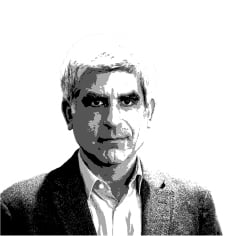-
TrendsLatin AmericaDemocracyEconomyPolarization
-
SectorPublic Administration
-
CountriesArgentina
Javier Milei won the election without a party or teams, state experience, or funding. Given the persistent economic crisis, he offered an anxious society a radical program of cuts and hardline measures when he realized that chaos could be a more appealing option than the status quo. And if Argentines were going to make a bold decision, communication had to fulfill its duty: to help them.
Milei’s success is rooted in his ability to adapt to discourse, aesthetics, and political trends. His campaign and government have skillfully exploited social anger, using extreme polarization and strategic aggression to their advantage.
He fits perfectly into the stereotype of the troll president, guided by the logic of algorithms that govern social networks. Becoming a “trend” is a matter of State for Milei. He celebrates the view metrics of his tweets as trophies, unashamed to compare himself with global figures who inspired him, like Donald Trump. He thinks in terms of audiences rather than citizens. A network of influencers amplifies the official narrative, attacks adversaries, and identifies traitors.
There are no forbidden tactics to grab attention, such as Milei’s photo holding a running chainsaw and the promise to “disrupt the establishment.” Even vulgarity can be a virtue. Milei understood this well when he incorporated the word carajo [“damn”] into his battle cry: “Long live freedom!” It doesn’t matter if he exasperates some as long as he excites many others.
His critics used to highlight the institutional weakness of his formation: “It’s just him, his sister, and his five dogs.” Over time, they discovered that the description would be intolerably unfair if it didn’t include the communication guru, Santiago Caputo. This 38-year-old consultant designed the presidential campaign and now acts as the de facto head of the administration, even though he is officially just an advisor.
Milei was a diamond in the rough in Caputo’s hands. Television producers were the first to detect something magnetic in this character, who could combine academic analysis with insults, the wild hair and the sobriety of a dark suit, religious morality, and fury against the establishment. They turned him into a full-time panelist during the years when Argentines began to see decline as destiny.
TV producers saw something magnetic in Milei. They made him a full-time commentator just as Argentinians were beginning to feel they were destined for a downfall.
Caputo helped Milei shed the caricature without losing freshness. He applied methods and norms of the trade that had already succeeded in other countries in the region. Aggressive, messianic, and divisive leadership is becoming the new normal in Latin America, from Jair Bolsonaro’s experience in Brazil to Gustavo Petro in Colombia or Nayib Bukele in El Salvador to Andrés López Obrador in Mexico.
Chavismo and its allies—such as the Kirchnerism that Milei defeated—stand out as distant inspirations for these polarizing exercises. If those “pioneers” of the left fought against the oligarchy, Milei’s monster is the State.
The “chaos engineers” who dominate digital mediation have perfected the technique. They work with the premise that there is a transfer of power from the political sphere to the technological one: the discussion has moved from cafes and TV studios to mobile phones.
Platform dynamics aim to increase the time users spend connected. Inflamed messages triumph over calm debate. If the adversary is hurt, so much the better. Tolerance and dissent are consigned to the despised corner of political correctness.
Milei follows a well-tested script. He portrays himself as the executioner who will end the “caste” that condemns his country to failure, drawing the line between good and evil. His ability to incite anger frightens his adversaries; he shapes public opinion by determining who to blame and who to accept in the new order.
He makes a virtue of contradiction. In the digital ecosystem, various messages work for different audiences, and majorities can be forged by interacting with dispersed communities. All that is needed is intelligent segmentation.
Unlike other leaders, the Argentine president is, above all, a believer. A prophet of the ideas that will turn Argentina into “the most prosperous nation on Earth.” He adds a moral component to the liberalism he preaches, which radicalizes every discussion.
In times when people are turning away from politics, he offers a mythology. His identity anchor is a past of economic greatness, similar to how nationalism, religion, or race serve that role in other regions.
He often resorts to shouting and insults. He appears “authentic.” If politics is theater, he steps on stage to play himself.
That’s why he rejects the artifices of classic politics. Milei has not held a single press conference in eight months of government. He says journalism is a thing of the past and that traditional media no longer influence public opinion. He is not attracted to giving speeches from a podium. If obliged, he offers master classes in economic theory. He enjoys engaging on social networks and talking with communicators who let him speak with minimal interruption.
He claims journalism is outdated and that traditional media no longer shape public opinion. He enjoys engaging with communicators who let him speak freely on social media.
Thus, he has built a subversive and overwhelming leadership. He now faces a challenge that his admired Trump or Bolsonaro have already experienced. Extreme polarization is often a double-edged sword: effective for gaining power, dangerous for exercising it efficiently.

Born in Buenos Aires in 1974, Martín joined La Nación in 1997, where he has held various roles, including writer for several sections, columnist, and political editor. From 2013 to 2017, he was a correspondent in Spain, based in Madrid. Since 2018, he has served as Newsroom Secretary, leading the Politics and Sports sections, while also contributing as a political columnist for LN+. He has shared his expertise as a professor at Universidad Torcuato Di Tella and in La Nación’s Master’s Program in Journalism. He holds a degree in Journalism from Universidad del Salvador and a postgraduate degree from the University of Miami. [Argentina]



